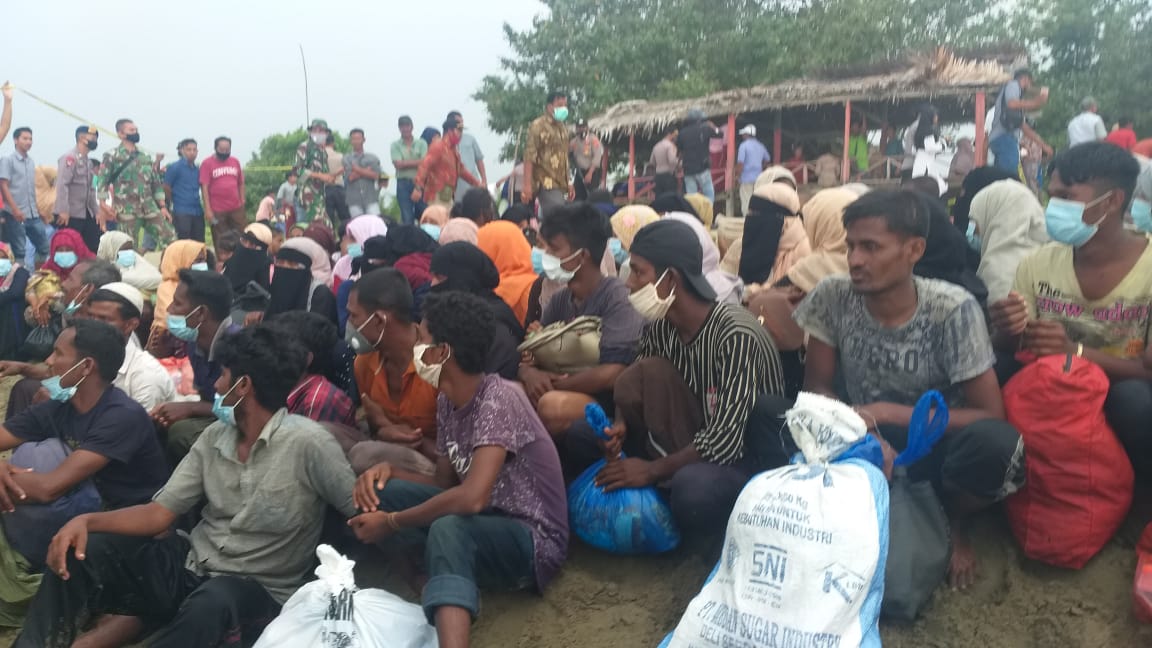In response to the Indonesian government’s initiative to allow disembarkation and provide emergency assistance for 99 Rohingya refugees stranded off the northern coast of Aceh, Amnesty International Indonesia Executive Director Usman Hamid said:
“The Indonesian authorities deserve credit for letting this rescue by local fishermen go ahead.
“Likewise Indonesia has shown humanity in its treatment of these Rohingya children, women and men since last week. Anyone who has gone through such an ordeal needs food, shelter and health services, including protection from COVID-19. Their health must come first.
“One week after those heroic scenes, hundreds of Rohingya people remain stranded at sea. The region cannot abandon them. There must be shared responsibility among regional countries in order to organise urgent search and rescue and prevent others from facing the same dangers.
“Through the Foreign Affairs Ministry, the Indonesian government should proactively lead a regional high-level dialogue that addresses the issue of Rohingya people stranded at sea.
“As co-chair of the Bali Process, and having led by example in recent days, Indonesia is perfectly placed to get traction and ultimately save more lives. This is an emergency.”
Background
On 2 July 2020, the European Union praised Indonesian Government’s decision to provide 99 Rohingya refugees with emergency assistance.
The refugees, mostly children, previously disembarked on 25 June in North Aceh after local people urged authorities to save them and protested until they were brought to shore. A few days earlier, the boat was spotted in Seunuddon Beach, North Aceh, by local fishermen who then reported their finding to local authorities.
Foreign Affairs Minister Retno Marsudi has pledged that the government will move the 99 survivors to a better shelter in Muara Dua, Lhokseumawe. She also said that the government had been working with the United Nations High Commissioner for Refugees (UNHCR) and the International Organization for Migration (IOM) to ensure the well-being of the refugees.
Reports from Amnesty International’s partnering organizations said that there is another boat currently at sea with an estimated 800 Rohingya on board.
International law imposes obligations on states to protect the human rights of refugees arriving on their shores.
The principle of non-refoulement obliges states not to return anyone to a place where they would be at risk of persecution or other serious human rights violations. The principle is the cornerstone of international refugee protection and is fundamental to the absolute prohibition of torture and cruel, inhuman or degrading treatment or punishment.
Indonesia is not a party to the 1951 UN Convention Relating to the Status of Refugees (Refugee Convention) or its 1967 Protocol. However, the principle of non-refoulement is also protected under general international human rights law, as well as customary international law, which is binding on all states without exception.

